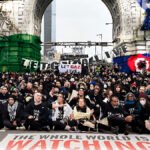by Syed Badrul Ahsan
Henry Kissinger’s passing at the ripe old age of 100 revives in us, here in Bangladesh, disturbing memories of what he could have done but did not do in the year we were struggling for freedom.
In 1971, our struggle was unlike any other, for we were also busy tackling the brutality of genocide that had been imposed on us simply because we as a nation had emerged electorally triumphant in December 1970.
Turning a Blind Eye
Kissinger was not with us as our men, women and children were mown down by a rapacious army throughout 1971. His interest was more in tune with policy he considered a necessity in diplomacy but which fundamentally was a looking away from the realities taking shape in occupied Bangladesh. In July 1971, Kissinger, at the time National Security Advisor to President Richard Nixon, travelled to Pakistan and from there flew secretly to Beijing in what was a diplomatic breakthrough for Washington. His meetings with the Chinese leadership paved the way for a wholesale change in global diplomacy through a trip to Beijing being arranged for President Nixon the following year.
But even as Kissinger was feted by Yahya Khan, even as he expressed his and his government’s gratitude to the military junta for arranging the secret trip to China, it was the tens of thousands of Bengalis who were getting killed on a daily basis in their occupied land, territory which the soldiers still regarded as East Pakistan. Terrified Bengali refugees in their millions were trekking to the border with India, crossing it in search of shelter and succour provided by the Indian government of Prime Minister Indira Gandhi. As Kissinger took off for China from Rawalpindi’s Chaklala airport, the Mujibnagar government was desperately engaged in organising resistance to the occupation forces.
Kissinger knew about it all, saw it all. But he ignored it all. His irritation over complaints on the killing of Bengalis by Archer K. Blood, the American consul in Dhaka, reached boiling point in Washington. Junior officers at the consulate in Dhaka shared Archer’s concerns. Kissinger was unmoved, as was Nixon. In the end, it was Archer Blood whose career came to a crashing end. Kissinger made sure Blood never climbed the rungs to higher positions in the American diplomatic structure. Blood’s fault? He had dared to paint a realistic picture of the grim situation in Bangladesh, a view that Kissinger was uncomfortable with.
Never Comfortable with ‘Bangladesh’
Kissinger was never comfortable with the idea of Bangladesh. It was a stance made clear in his interaction, along with Nixon, with Indira Gandhi when the Indian leader travelled to Washington in November 1971 to urge Washington to exercise its clout in persuading Yahya Khan to go for a negotiated settlement in Bangladesh through releasing the incarcerated Sheikh Mujibur Rahman. Nixon and Kissinger’s antipathy toward Mrs Gandhi was made abundantly clear when, behind her back (and there are the transcripts to prove it) they used disparaging language about her. It was language that was vitriolic and abusive and obscene.
Kissinger never showed the slightest interest in ensuring that the Pakistani regime put a stop to its military action in Bangladesh. When the Nixon administration despatched the Seventh Fleet to the Bay of Bengal as Bangladesh’s emergence became a real possibility, the goal was to save Pakistan at the last minute. The move failed. It then became Kissinger’s job – and Nixon’s too – to ask the Indians for a guarantee that what remained of Pakistan in the west would not be overrun by the Indian army.
Kissinger, whose probable role in or knowledge of the assassination of Bangabandhu was severely condemned by the journalist Christopher Hitchens in his work, The Trial of Henry Kissinger, never expressed any contrition over his role in the Bangladesh crisis. Once the war was over and Bangabandhu, in September 1974, travelled to New York to speak at the UN General Assembly, Kissinger called on him and feigned his friendly feelings toward the Bangladesh leader. Late in October of the year, he made a brief visit to Dhaka, where he met Bangabandhu and Foreign Minister Kamal Hossain and at the end of the meeting spoke to the media. At a banquet hosted in his honour by Hossain, Kissinger made it a point to note that the Bangladesh Foreign Minister had been his student at Harvard.
Kissinger’s ambivalent attitude to Bangladesh was noted a few years ago, as late as 2016, when, in an interview with a reputed American journal, he revealed – to the surprise of readers – that the Nixon administration had been working with Yahya Khan on a plan to have Bangladesh become an independent state in March 1972. This was disingenuous, for there was no indication in 1971 or later that Kissinger and President Nixon were indeed engaged in such an enterprise. Besides, when Kissinger spoke of the March 1972 plan to his interviewer, all the principal players of 1971 were dead — Indira Gandhi, Sheikh Mujibur Rahman, Zulfikar Ali Bhutto, Yahya Khan, Richard Nixon — and therefore there was no way to verify his statement.
‘Bottomless Basket’
One last word: the term ‘bottomless basket’ in relation to Bangladesh has for years been attributed to Henry Kissinger. The fact is that he never invented or used the term. In reality, there has been no such term as ‘bottomless basket’. The actual term, ‘an international basket case’, was the invention of U. Alexis Johnson, Kissinger’s deputy, at a meeting of the Washington Special Actions Group (WSAG) in Washington on 6 December 1971, ten days before the surrender of the Pakistan army in Dhaka. Johnson noted that if Bangladesh emerged as an independent country, it would be an international basket case. Kissinger’s response was, ‘But not necessarily our basket case.’
Henry Kissinger goes to his grave. Let him rest in peace. He could have been our friend, but he chose not to be. And that was a pity.
Author: is the Chief Editorial Adviser of The Confluence; a journalist and author. He previously served as the Press Minister at the High Commission of Bangladesh/Courtesy by The Confluence







